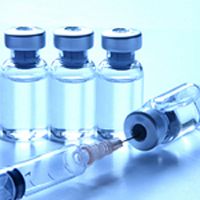Article
Steroid Therapy: Increasing Risk of Blood Clots 5-fold in IBD Patients
Author(s):
Corticosteroid (steroid) is associated with an approximately 5-fold increase of venous thromboembolism in patients suffering from inflammatory bowel disease (IBD), according to a new study published in Clinical Gastroenterology and Hepatology.

Corticosteroid (steroid) is associated with an approximately 5-fold increase of venous thromboembolism in patients suffering from inflammatory bowel disease (IBD), according to a new study published in Clinical Gastroenterology and Hepatology.
Researchers, led by Peter D.R. Higgins, MD, PhD, MSc, from the University of Michigan, Ann Arbor, monitored 15,100 IBD patients treated with biologics, corticosteroids, or combination therapy (biologics and corticosteroids) for venous thromboembolic events. A total of 325 venous thromboembolic events occurred during the study period with rates of 2.25%, 0.44%, and 2.49% for the corticosteroid-only, biologic-only, and combination therapy groups, respectively.
Study results found that corticosteroid use, whether alone or combined with biologics, substantially increased the rate of venous thromboembolic events.
Higgins commented in a news release, “This was strikingly different from the patients who were on biologics alone, who had a significantly lower rate of events. Venous thromboembolism is common in IBD, and can lead to significant morbidity, increased death and high rates of recurrent blood clots. The importance of understanding what causes this complication in this patient group cannot be understated.”
Despite previous speculations of the established relationship between active IBD flares and venous thromboembolism, the latest wave of results highlighted a strong, independent, association between corticosteroid use and venous thromboembolism.
Experts had agreed that further research is necessary to better understand the effects of corticosteroids on this complication of IBD, potentially prompting an alteration to existing therapeutic methods.
“Combination therapy with corticosteroids and biologics was associated with nearly the same risk as corticosteroids alone, validating our conclusion that corticosteroids may truly increase venous thromboembolism risk, and eliminate the potential benefit (for venous thromboembolic events) of inducing remission with biologics alone,” concluded Higgins.




